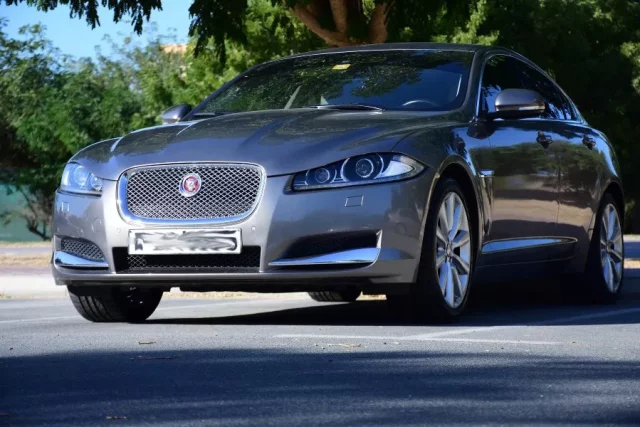Buying a used car can be an intimidating prospect, but it doesn’t have to be. With the right research and preparation, you can make sure that you get the perfect vehicle for your needs at a price that fits within your budget.
There are many advantages to buying a used car instead of a new one: you avoid the costly depreciation of a brand-new vehicle; there is more selection available; and it’s often much easier on your wallet than buying something off the lot. However, there are also certain pitfalls to watch out for when making such an important purchase.
In this article, we’ll discuss some tips and tricks for getting the most value out of buying a used car. We’ll cover how to choose the best model for your needs and budget, what questions to ask when inspecting potential vehicles, as well as helpful advice on financing options and negotiating with sellers. By following these steps, you can ensure that you end up with an automobile that meets all of your requirements while still remaining affordable in today’s market.
Start Your Search Online
The internet is an invaluable resource for researching used cars. There are numerous websites and online classifieds dedicated to buying and selling vehicles, so you can easily compare prices and options in the comfort of your own home. It’s always a good idea to browse through several different sources before making any decisions. Additionally, there are many sites that specialize in rating and reviewing different models, so you can get a better idea of which vehicle would best suit your needs. The folks at UsedCarsMinnesota.com note that most used cars have a history report available from Carfax which can provide vital information about previous owners, maintenance records, and possible recalls. This will help you narrow down your options and select a used car that is reliable, safe, and right for you.
Set Your Budget and Prioritize Your Needs
Before you start looking for a used car, it’s important to set your budget and decide exactly what you need in a vehicle. Make sure that the price fits within your budget, and make sure the car has all the features you want. It’s important to prioritize your needs when shopping for a used car, as it may not be possible to get everything on your wishlist in one vehicle. When setting your budget, be sure to factor in costs such as registration fees, taxes, insurance premiums, and any maintenance or repairs that may be needed.
Inspect The Vehicle Carefully
When you’ve found a few used cars you’re interested in, it’s time to take them for a test drive. Be sure to visually inspect the vehicle thoroughly before you take it out. Make sure all of the lights, windows, and doors are in working order, and check for any visible signs of damage or wear and tear. Check under the hood to make sure everything is in good condition, as well as underneath the car for leaks or rust. It’s also important to ask the seller any questions you may have about the car’s history and maintenance.
Be Prepared To Negotiate
When you finally decide on the car that’s right for you, it’s important to be prepared to negotiate with the seller in order to get the best possible deal. Be sure to research the market price for the vehicle you’re interested in, as well as any additional fees or costs. You should also be prepared to walk away if necessary; if the seller isn’t willing to meet your price or terms, it’s probably best to look elsewhere. When it comes to negotiating, always remember that you have the power. Don’t be afraid to haggle a bit and get the best deal possible.
Financing Options
If you don’t have the money to buy a used car outright, there are several financing options available. You may be able to get an auto loan from a bank or credit union, or you can finance the car directly from the seller. Another option is to apply for a lease-to-own agreement, which allows you to make smaller payments on an automobile until it is paid off in full. Be sure to research all of your financing options before committing to any loans or contracts. When choosing a financing option consider:
- The terms and interest rates,
- The total cost of the loan including any fees,
- The length of the loan,
- Any additional services required such as insurance.
Choosing The Right Car
When shopping for a used car, it’s important to consider all of your options. Do some research and find out what type of car will best suit your needs and budget. Think about the features you want in a vehicle, such as safety ratings, fuel efficiency, and storage space. Also, ask yourself how much you are willing to spend and what type of condition the car should be in. To help you narrow down your choices, here are a few questions to consider when browsing for a used car:
- What year is the car? How much mileage does it have on it?
- Is the body free from rust or any major blemishes?
- How has the car been maintained?
- Does it come with a warranty or an extended service package?
- Have all of the servicing and maintenance records been kept up to date?
- What type of fuel does the vehicle use and how many miles per gallon does it get?
- Are there any known problems with the car that need to be addressed?
- Are there any hidden costs associated with the car (such as registration fees or taxes)?
By doing your research and asking these important questions, you can make an informed decision when it comes to purchasing a used vehicle. You may also want to consult a trusted mechanic or car dealership to get their opinion on the condition of the car.
In conclusion, buying a used car can be an intimidating process. However, with the right knowledge and preparation, you can feel confident that you’re making the best decision possible. By following these steps, you can ensure that you end up with an automobile that meets all of your requirements while still remaining affordable in today’s market. Good luck!














